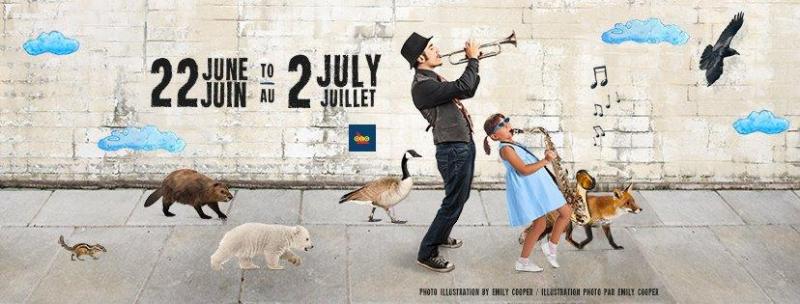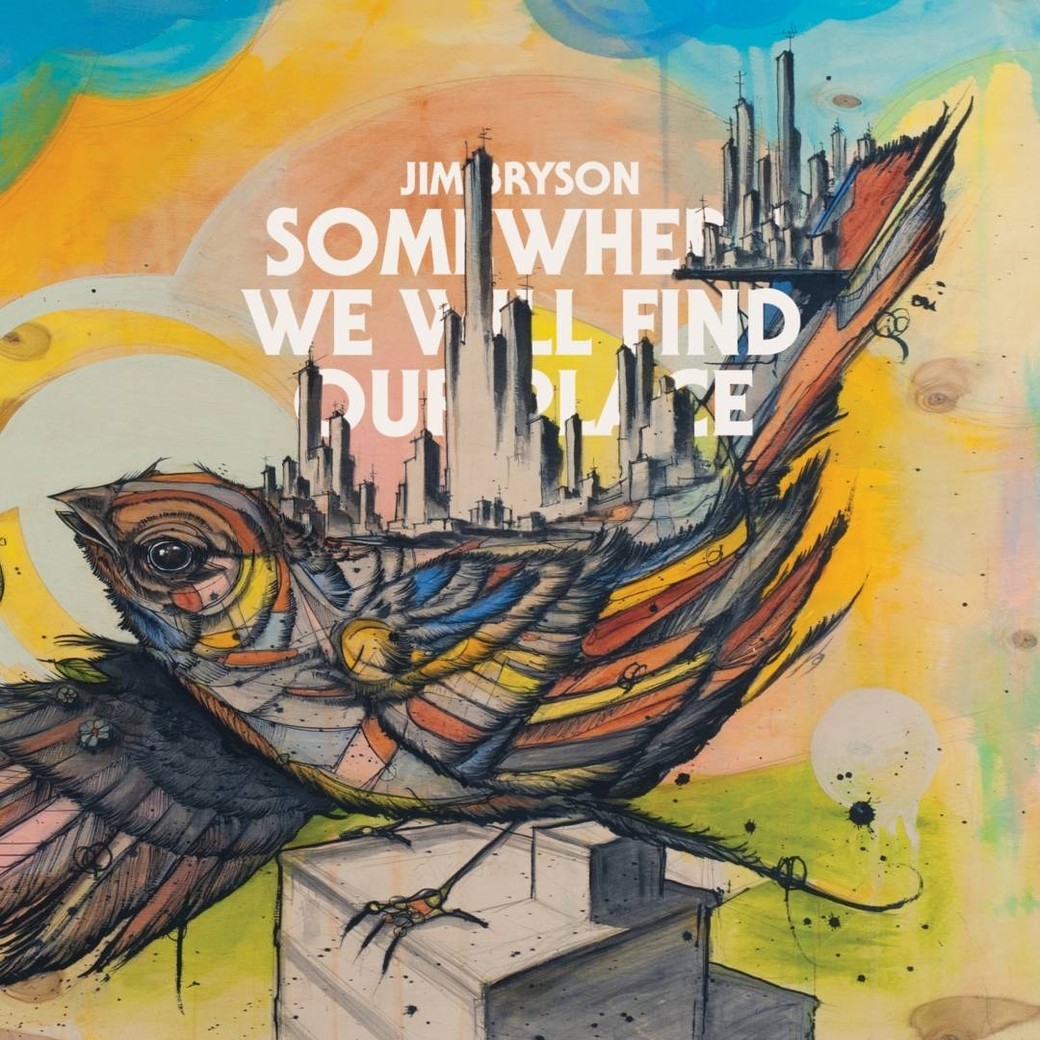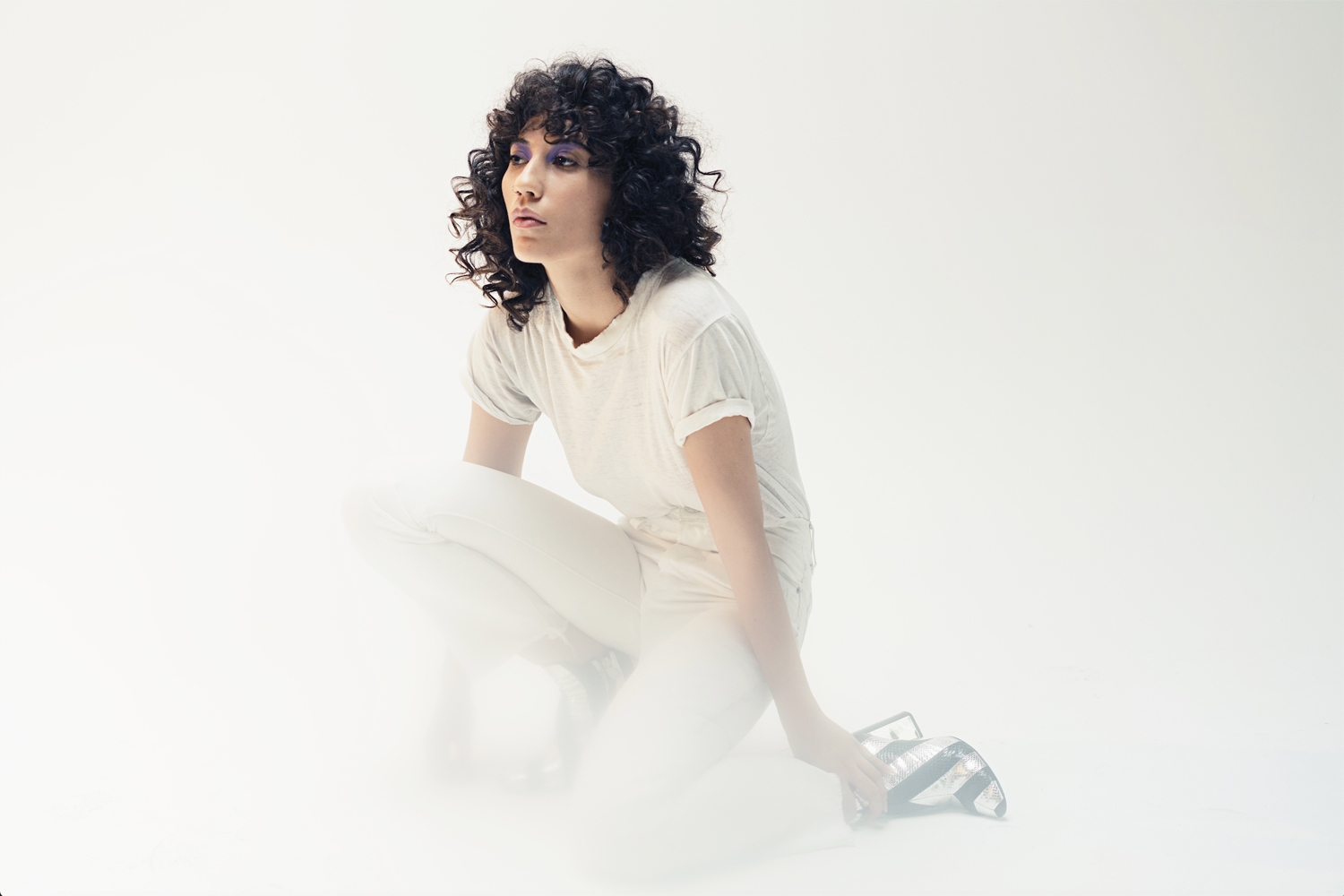
The Evolution of Quinn Bachand
 Ottawa Life’s Festival City Series is back! We'll provide a unique look at some of your favourite events.
Ottawa Life’s Festival City Series is back! We'll provide a unique look at some of your favourite events.
We’ll go beyond the music with artist interviews, volunteer profiles, concert reviews and spotlights on
the tastes, sights and sounds of the festival season.
Your city! Your festivals and events!
Like a good sunscreen, Ottawa Life has you covered.
Quinn Bachand is all about embracing growth. As his website bio says, the evolution of a young musician is something beautiful to behold. Some just evolve a whole lot quicker than others.
Bachand, who’ll be bringing his band Brishen to the TD Ottawa Jazz Festival Friday night for a show inside La Nouvelle Scene, started showcasing an incredible knack on the guitar when he was only 11 but, hey, why stop there? Six years and some tours with Natalie MacMaster and Ashley MacIsaac later, he had added over a dozen more instruments to his repertoire.
Belying his tender years, Quinn’s seasoned artistry has already earned him a tidal wave of recognition including the Saga Djangofest Award, WCMA nominations for “Instrumental Album of the Year” and 2017 “Jazz Artist of the Year”. finalist position as “Emerging Artist” by Canada’s Walk Of Fame, a full ride 4-year music scholarship at Berklee, a quinn-tet of CFMA nominations. Still, even if you can be a one man band you sometimes need a little help from your friends….or sibling in this instance. Bachand formed a duo with his sister Qristina and the two quickly became an act to follow on the international Celtic music scene.
Always up for a new challenge, Quinn veered off in a totally different direction musically when he put his solo work and musical travels with his sister aside to form Brishen, a five piece which includes, along with Bachand on lead, rhythm guitar, upright bass, sax and drums. Bachand also breaks out the fiddle and lays down some vocals that have been compared to artists like Bobby Vinton. They are currently on tour for their new album Blue Verdun, a release that firmly embraces the traditions of swing jazz (with a well blended taste of gypsy jazz and a dab or two of country roots and pop).
 We had a chance to talk to Quinn about the many facets of his still young career and where he thinks he's headed next.
We had a chance to talk to Quinn about the many facets of his still young career and where he thinks he's headed next.
You started playing the guitar at a young age but seemed to have been born with it in your hand. Why do you feel you took so quickly to the instrument?
I started on the violin and that was very good for my ears and helped get me working on my intuition! I think tuning in with that can really help in adapting to new instruments and musical settings. I do love the guitar but I think playing other instruments can help in being a well rounded musician.
Certainly, you weren't satisfied with just the guitar going on to play over a dozen more instruments by the time you hit your mid teens. How did you find yourself mustering up such focus in your adolescence?
I love learning new instruments and thinking how they can fit into a greater picture and luckily a lot of the skills I had on violin and guitar directly applied to new ones like banjo and the mandolin family of instruments for example.
Your sister is also a musician. While many might opt for the usual sibling rivalry growing up, you two formed what would become an award winning duo. How do you find your musical bonds strengthened those family ties or vice versa?
I don't think the music itself strengthened our family ties but we definitely had way more opportunities to spend time together and that can be both good and bad in close quarters as any sibling knows!
You spent a lot of time touring with her but are now branching out to other projects. Have you found it difficult to find some footing as a solo artists or is this a path you have welcomed exploring?
I've had experience playing with other bands and playing different roles. I've also led projects since about 16 so I'm pretty used to it but still learning how to direct the best way possible. I'm fortunate that I have strong opinions on what I like and dislike so I find I love exploring the things I do and opening up to the things I don't and applying them to different projects.
How have other members of your family been supportive in your music?
My dad is a luthier so he's the main reason I play the guitar. I always wanted to play one of his and by the time I was 16 he was back in the shop and I haven't put it down. My mom has been my manager forever and I'm very fortunate that we can work together, she does an amazing job.
At 21, you've carved out an early career in music. Was it something you always wanted to pursue or do you have other artistic projects in mind?
I have lots of interests but they mostly all fall under the music category whether it's recording, producing, writing etc. I love photography and have studied a bit on my own time!
How did you discover Swing Jazz and what had you so taken by the music to have you want to devote a lot of your repertoire to the genre?
I first heard Bob Wills and the Texas Playboys when I was 9 and fell in love with western swing. After that my dad showed me Django and at the time there was a little gypsy jazz revival happening. I love the vibe of both those styles and have since I first listened to them and I try to preserve that energy in Brishen.
As somebody who certainly could have stuck to being a solo musician or continued successful tours with your sister, what had you forming Brishen?
With Brishen I want to represent this certain type of music while staying aware of its cliches and maintaining its youthful energy.
The band certainly has a unique sound, haunting at times and very evocative of a bygone age. What influences would you say had the biggest impact on the band's sound as a whole?
The new album, Blue Verdun, is drawing from Hawaiian and western swing rhythm sections a lot. The songs are inspired by tinpan alley stuff and production wise it's pretty late 50's early 60's but really varies track to track. Of course instrumentally it's heavily influenced by American and European swing jazz as well.
You have a profound respect for tradition sounds which really comes out in your music. How do you find the band takes this and evolves it into something that is modern but still maintains elements of the past?
I think it's important to be completely aware of the cliches in the music. You have to have an understanding of the style but also a vision of the production and see it through to the end.
The new album, Blue Verdun, really seems like a merge of these early jazz swing sounds. How did the album develop for your from its early stages and, then, together in studio?
The whole album happened within a couple months but I had dreamed about a good way to merge the different stuff I wanted on there to sound believable.
Well, I say studio but it was recorded in a Montreal apartment, right? Was it important for you to create the right kind of environment for this music?
Yes I recorded it all in my apartment and it seemed to work really well. Different rooms were more echoey than others so it was perfect to work with, very lively. I love working at home too since I have a lot of responsibility playing different instruments and had the time to explore parts of the house. By the time I added drums, bass and sax I knew how I wanted them to be recorded.
The album has been called a “psychedelic, kaleidoscopic musical world that you’ve never heard before” that almost sounds "like it came from another planet". As you listen to it now and perform the songs live where does it take you?
The live show is fun because there's more room to stretch out instrumentally without the strings and choir. This summer we'll be touring as a 5 piece. Sax/flute, rhythm guitar, drums, bass and myself on fiddle/guitar and vocals.
Your music doesn't shy away from experimentation. Where do you think you'll go next?
As for Brishen, I'd love to continue exploring different eras of jazz and make albums that's don't exist! I'm thinking Hawaiian Christmas or a Japanese swing album.











